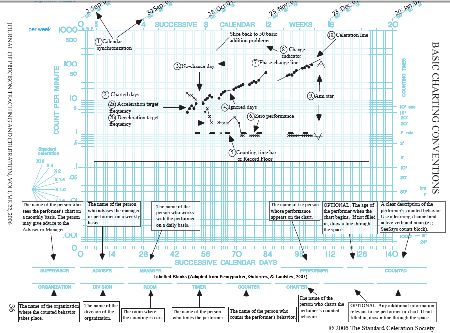The Massachusetts Department of Elementary and Secondary Education issued a certificate of Provisional Approval, the first level approval, to
Beal Street Academy , Hingham, Massachusetts, on September 4, 2009. “We have been working toward this approval for three years—it is a terrific and important step for students and families on the South Shore. Beal Street Academy will teach students ages 13-22 who have fallen substantially behind in their schoolwork,” said Richard McManus, Founder and Executive Director. “Many people have worked very hard to achieve this recognition, including parents who dearly wanted this school to exist, and our staff, who persevered despite many obstacles.”
Beal Street Academy's Mission StatementMcManus reports that the school can now accept referrals from cities and towns, and knows that there are quite a few students whose needs will be filled by the school’s excellent curriculum and teaching approach. “We use Precision Teaching, a highly validated and successful approach to teach students to excel in their work. We use the same approach that we have used for seven very successful years at The Fluency Factory , our tutoring center, but now we will have sufficient time and resources to help students with learning disabilities to attain far more success than they previously have achieved.”
Beal Street Academy will provide an intense education intervention to increase student academic performances by at least two years for each year in the program.
"...When the Strazzulas informed McManus that their child had no attention span, could not recognize his own name in print, and had learned some sight words but never seemed to hold on to what he learned, McManus was undaunted.Rosemary Littlefield, the school’s Principal, has been very impressed by the progress that Beal Street has made in a very short time. “I have been involved with several other schools during my career, but this is the first time I have worked to launch a new school. The approval process was very challenging, but we worked together and made it happen.” McManus says, “Diane Evans, our Head Teacher, was so important to the application process—it would have been impossible without her.” The school, though newly approved, already has several referrals and will be adding students during the school year. Ultimately it will serve 20 students.
'Great, send him! was Richard’s response,' Strazzulla said. 'James loves going to school here. At first progress was very slow, . . . but now he reads for pleasure and sets high goals for himself. And why not? People are dreaming for him now. He has far exceeded our expectations, and we hope he will be an example to others of never giving up. . . . He just finished his fifth Harry Potter book and is now reading the sixth. . . . The sky’s the limit now.”..."
------------------------------------
Related stories and blogposts
State gives provisional OK to special needs school in Hingham
The Patriot Ledger,
September 9, 2009
Beal Street Academy fills a growing need
Articles on the Fluency Factory, Beal Street Academy, and written by Richard McManus
At the Fluency Factory
Sunday, November 15, 2009
ANNOUNCE: Nov. 22, 2009 Hingham, MA - Richard McManus to Speak on "Do Expectations Determine Outcomes?"
Thursday, June 4, 2009
OPPORTUNITY: Hingham, MA Summer Programs at The Fluency Factory
-----------------
DISCLAIMER: Information is posted for informational or educational purposes of readers but is not, nor claims to be, an official outlet of the Standard Celeration Society or any other organization or business.
Readers are directed to seek definitive information from those primary sources
DISCLAIMER: Information is posted for informational or educational purposes of readers but is not, nor claims to be, an official outlet of the Standard Celeration Society or any other organization or business.
Readers are directed to seek definitive information from those primary sources


























